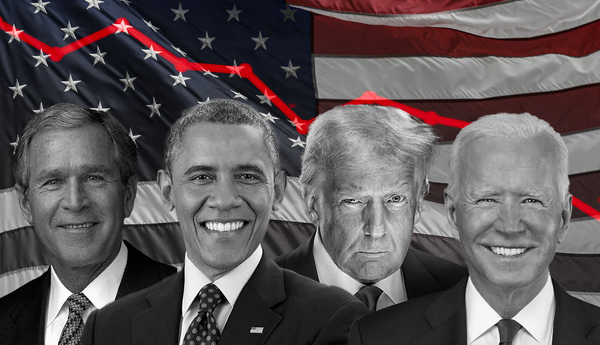On November 7, Global News published an article alleging that Canadian intelligence officials briefed Prime Minister Justin Trudeau in January of a supposed attempt by China to interfere in the country’s 2019 federal election. The reporting was quickly picked up by news outlets in Canada and abroad, and the next day, Trudeau claimed that China has played “aggressive games with our institutions, with our democracies.” On November 14, MPs from multiple parties on the Procedure and House Affairs Committee agreed to launch a probe into the claims.
Allegations of foreign interference in elections by Official Enemy states have proven to be particularly useful for a wide range of forces in Western countries. For example, intelligence agencies use these claims to push for harsher laws and more funding, and benefit off of the popularity boost it can provide to them. Politicians supposedly negatively impacted by the alleged interference can attribute their failures to them, as opposed to critically examining other factors. Those leaders in power can use them to drum up support for policies against the country they wanted to pursue anyways. Journalists use them to secure grants and positions as “disinformation” reporters, allowing themselves to feel like brave truth-tellers serving the public all the while being supported by government agencies they should be holding to account.
As such, it’s no surprise that few are willing to dig into these claims of interference to see if they actually hold up, and what, if any, actual impact they may have had if true. It doesn’t help that these allegations are typically levelled against countries that have long been the subject of Western conspiracy theories for ideological and/or racial reasons, meaning the public has already been primed to believe them. (For example, see this November 13 Global News article with the headline “Canada faces ‘peril’ without action on alleged Chinese interference, experts warn,” using the language of a more than 100-year-old xenophobia campaign called the Yellow Peril.)
I’m concerned that this is exactly what will happen in Canada with this ongoing allegation of foreign interference by China. With that in mind, I plan to pay attention to the story as it develops, and try to offer a critical voice that I don’t expect will be provided anywhere else (other than maybe one or two other independent leftist publications).
On that note, to start, I want to take a closer look at reports released in the past couple of years alleging supposed interference by China in Canadian elections. These reports have been authored by well-funded think tanks and individuals (often getting money directly from the government), and usually get their claims repeated by media outlets and politicians. And yet, almost none of this coverage of what they find is critical, instead accepting the most maximal conclusions of their reports at face value.
One such report comes from the Atlantic Council’s Digital Forensic Research Lab, and was published in November 2021 under the headline “China-linked WeChat accounts spread disinformation in advance of 2021 Canadian election.” The Atlantic Council is funded in part through donations by a broad range of Western governments and their departments, including the U.S. Department of State and the Canadian Department of Foreign Affairs Trade and Development.
The report rests on four claims:
- The Chinese diaspora relies on WeChat to stay informed about the news
- An account on the platform is “linked” to China
- That account spread “disinformation”
- This “disinformation” may have impacted how people voted
The report claims that WeChat is “the primary outlet from which many diaspora Chinese — especially first-generation immigrants — receive their news.” Despite identifying WeChat as the “primary outlet” diaspora relies on, however, it treats it as if it’s the only one, and that the community is completely at the mercy of whatever is discussed there.
The report goes on to argue that this is a problem because an account on WeChat is “linked” to China. What exactly does “linked” mean here? The report goes on for paragraphs, and I do encourage you to read it, but I’ll try to boil it down as much as possible here, which is actually pretty easy: an employee of a major translation service (which claims to have 60 full-time employees and more than 2,000 part-time staff) runs a WeChat account pretending to be China’s Toronto Consulate, but in fact isn’t.
So what’s the “link” with China here? Well, according to the report, the company has a “close working relationship” with Chinese consulates and other government organizations. It doesn’t specify what this relationship is, allowing readers to jump to the most nefarious conclusions. In fact, a review of the company makes it clear the relationship it has is that its clients include Chinese government agencies, which is hardly surprising given that it’s a translation company.
In other words, what the report wants you to think is a scary relationship is the equivalent of the employee of a translation company suggested to me by the Italian consulate in Toronto for citizenship application documents running a Facebook page pretending to be the consulate itself.
With the supposed link out of the way, what’s the allegation of “disinformation” during the 2021 federal election here?
To start, the report claims that it “uncovered a number of articles on WeChat aimed at the Chinese diaspora population with the aim of influencing the diaspora vote.” In other words, the researchers went on WeChat and while browsing around they read articles about the election — a completely normal experience on every social media platform in Canada.
Right off the bat, the report notes that about half of these articles “provided resources for how to access official information on voter registration and the platforms and positions of candidates running in particular areas,” which is something that should be encouraged.
As for the other chunk, the article claims that they included “disinformation intended to dissuade Chinese voters from supporting candidates holding anti-China views,” and that some of them were authored by the account mentioned above.
The report offers a single example of a post from this WeChat account as disinformation, which is that in a news briefing, they included an opinion article from another outlet about a private member’s bill from a Conservative MP. The bill in question was the Foreign Influence Registry Act from Kenny Chiu, which “imposes an obligation on individuals acting on behalf of a foreign principal to file a return when they undertake specific actions with respect to public office holders. It also provides for the establishment of a public registry in which all returns must be kept.” The article argues that it could result in monitoring of members of the Chinese diaspora, which is a perspective that, agree with it or not, seems reasonable and well within the realm of what should constitute public discourse.
This benign article was just one of many included in the newsletter. The report itself admits that the other items in the newsletter can be considered as “largely neutral, information-based topics.” But rather than seeing that for what it is (a newsletter that shares a mix of opinion and news, just like mine and so many others), the report claim it’s a tactic whereby malicious actors embed “incendiary, misleading content” with news to “impute an air of legitimacy to it” and move it from opinion to fact. Bizarre.
Plus, as I noted, this article wasn’t even written or published by the account in question, but by another account entirely. And yet for the report’s author, this is a problem because that other account spreads “official Chinese narratives on topics ranging from Xinjiang to Hong Kong.” Translate that into Canadian media terms, and it’s the equivalent of pointing out that news outlets here often agree with the government in their editorials. That doesn’t even draw the notice of these sorts of academics, but suddenly is evidence of a vast conspiracy when it comes to China rather than just a sign that members of the diaspora can hold views that don’t align with the Canadian government.
So, again, let’s sum this up. An employee of a translation company that does work for the Chinese government runs a WeChat account sharing news, and in one of their newsletters one of the many items included was an opinion article published by another outlet that sometimes publishes articles agreeing with the Chinese government.
Very scary…
And as for the impact of all of this? The report notes that Chiu lost his re-election bid in 2021 to a Liberal in a swing of about 15 points from the previous election, and that he attributed the loss in part to WeChat. But the report also states that, “It is difficult to measure direct impact [sic] of such messages on election outcomes,” and points to an article noting that as a whole, Chinese diaspora members voted for the Liberals in much higher numbers than before, including traditionally Conservative voters. It adds that the “Chinese Canadian Conservative Association — a group representing Conservative-leaning Chinese voters in Canada — urged Conservative MP Erin O’Toole to resign, stating that the party’s anti-China stance alienated Chinese Canadian voters and ultimately cost Conservatives the election. They also urged the party to take a less ‘confrontational’ stance toward China, as the use of racist tropes and othering language by some party members could foment hatred against the Chinese community.”
So, in short, the actor in the report had very little impact, and had little if any connection to the Chinese government in the first place. The report’s author just seems to be upset that the Chinese diaspora can get news from sources outside mainstream corporate media, and as such, are occasionally exposed to views that aren’t in line with Canadian foreign policy.
Now, with all of this in mind, let’s briefly look at how this report has been covered in that very same corporate media.
Last week, Robyn Urback, a columnist at The Globe and Mail, cited the report as one of many which have “suggested that Beijing or pro-Beijing actors meddled in recent Canadian elections.” No details of the report are given. The week before, Postmedia columnist Terry Glavin mentioned the report, claiming it “found that last year’s Beijing-directed hatchet jobs were countrywide.” Again, no details of the report were mentioned. In January, the report formed the basis of an editorial from The Globe and Mail about Chiu’s loss, titled “Did China target a Conservative MP in Canada’s last federal election?” (Tip: if a headline includes a question mark, the answer is probably no.) The examples go on.
All of this shows you how fear mongering reports from Western-funded think tanks based on the flimsiest of evidence are used by the media to help get readers believing there’s something nefarious at play.
Maybe there is, but this report certainly doesn’t prove it. Neither do the other ones. Stay tuned for my reviews of those.







